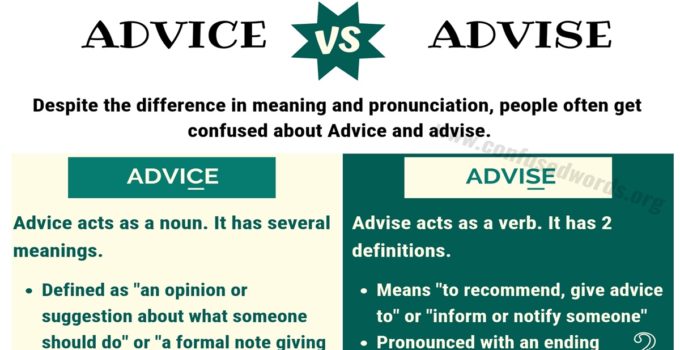Mastering 'Advice Vs Advise': Your Ultimate Guide To English Clarity
In the intricate tapestry of the English language, few pairs of words cause as much confusion as "advice" and "advise." While they sound remarkably similar and are intimately related in meaning, their grammatical functions are distinct, leading to frequent errors even among native speakers. This article aims to unravel the mystery surrounding advice vs advise, providing you with a comprehensive guide to master their correct usage, enhance your writing, and communicate with precision.
Understanding the subtle yet crucial difference between these two terms is not merely an academic exercise; it's a fundamental step towards clear, effective communication in both professional and personal spheres. Misusing them can subtly undermine your credibility, obscure your message, or simply mark you as someone less attentive to detail. Join us as we delve deep into the nuances of "advice" and "advise," equipping you with the knowledge to use them flawlessly every time.
Table of Contents
- The Fundamental Distinction: Noun vs. Verb
- Unveiling 'Advice': The Noun
- Exploring 'Advise': The Verb
- Why the Confusion? Common Pitfalls
- Mastering the Distinction: Practical Tips and Mnemonics
- The Impact of Precision: Why It Matters for Your Credibility
- Contextual Usage: 'Advice vs Advise' in Action
- Beyond the Basics: Related Concepts and Words
The Fundamental Distinction: Noun vs. Verb
At the heart of the "advice vs advise" dilemma lies a basic grammatical concept: parts of speech

ADVICE Vs ADVISE: Difference Between Advise Vs Advice (with Examples

Advice vs. Advise: Difference between Advise vs Advice? - Confused Words

Advice vs. Advise: Difference between Advise vs Advice? - Confused Words